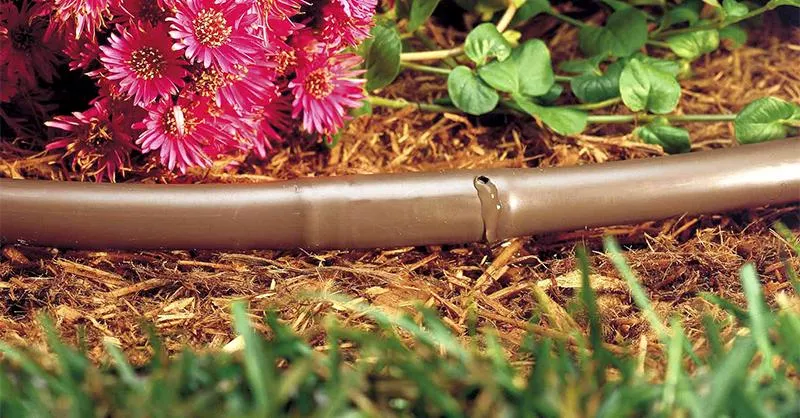In our irrigation blogs posts, we spend quite a bit of time talking about how to water using the common spray and rotary heads, but in the past cuple years we're seeing more and more drip irrigation systems being installed. I've begun getting questions about where they should be used and how long they should be run for sufficient watering amounts.
Drip and low volume sprinkler systems put water exactly where you want it with virtually no loss to evaporation, which is why we've seen the City of Gainesville and Alachua County EPA recently begin encouraging and sometimes even required them.
Here are a few tips and tricks regarding drip systems:
- The best use of drip lines is in narrow bed areas that spray heads can't cover well, such as around swimming pools or groundcover beds. Because they put out water very slowly, they are also great to use on slopes.
- Drip irrigation is designed to distribute a consistent amount of water in the soil by watering the root zone completely and regularly. Because of the low amount of water it puts out, drip lines are not as effective when they are run once or twice per week - if the soil dries out, it takes a long time for drip lines to put out enough water to catch back up.
- Our slab foundations need a consistent amount of water at all times which makes drip lines ideal for watering the foundation.
- During the summer, in sunny areas, drip zones should be run no less than an 3 hours per week, per zone total (approx 60 minutes per week 3x a week). Why so much more time than rotors and sprays? Drip zones put out about 15-20% the water those other heads do.
- Drip lines are meant to be covered with mulch or buried. The weakest part of drip lines are all of the connections which are held together with barbs that will sometimes pop loose. If the drip line is left in the sun, the heat on the hose will make it soft and the connections will come apart much more often.
- Because the lines are shallow, they tend to get damaged more often then other sprinkler lines. They are prime targets for aerators, people weeding your beds, or even squirrels that love to chew on anything- so it's a good idea to have your Gainesville sprinkler system inspected several times throughout the year, just to be sure you haven't developed a clogged line or leak in the hose.
- During droughts, most cities exempt drip lines from their water restrictions so if your landscape beds are on drip zones, you can water those as needed without concern for citations from the city.
If you have anyGainesville lawn or landscape questions, give us a call at 352-378-5296 or email info@themasterslawncare.com. We love to answer your questions and can often use them to help other clients in blogs like this one.


